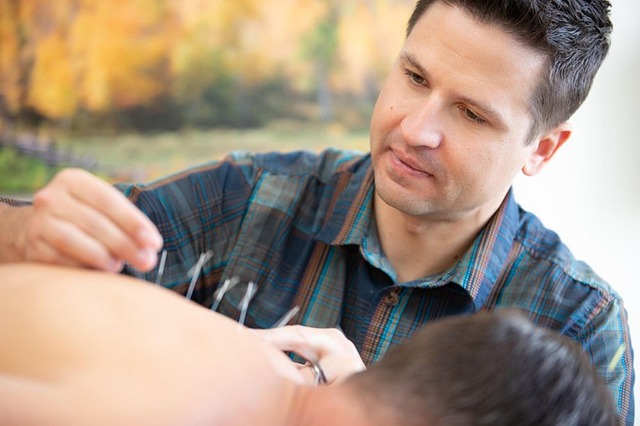Sexual abuse survivors in Denver, CO, benefit from accessible therapy services, including CBT and group support, for healing and recovery. Legal aid from a sexual abuse lawyer Denver CO addresses legal challenges, while non-profit organizations provide crisis intervention and emotional support. Skilled therapists help process trauma, manage symptoms of PTSD and anxiety, and foster resilience through evidence-based practices and self-care strategies. Collaboration between therapists and lawyers offers comprehensive support for survivors’ physical and psychological well-being.
Sexual abuse is a profound and lasting trauma that affects countless individuals, many of whom may struggle silently. In Denver CO, access to specialized support is essential for survivors seeking healing. The impact of sexual abuse extends far beyond the initial incident, causing long-term psychological and emotional distress. This article delves into the transformative power of therapy as a critical tool for sexual abuse survivors in Denver to reclaim their lives. By exploring evidence-based therapeutic approaches, we aim to provide valuable insights for those seeking recovery, guided by the expertise of local sexual abuse lawyers Denver CO who advocate for survivor rights.
Understanding the Impact of Sexual Abuse: A Legal Perspective

Sexual abuse is a profound trauma with lasting effects on survivors’ physical and mental well-being, often requiring professional support for healing. In Denver CO, access to specialized therapy services plays a crucial role in helping individuals navigate the complex journey of recovery. From a legal perspective, understanding the impact of sexual abuse is essential not only for the criminal justice system but also for supporting survivors’ civil rights and compensation.
The long-term consequences of sexual assault can include anxiety, depression, post-traumatic stress disorder (PTSD), chronic pain, and physical health issues. These impacts can be magnified by societal stigma, lack of support, or limited access to legal resources. A sexual abuse lawyer in Denver CO highlights that survivors often face challenges in reporting and pursuing legal action due to fear, shame, or a belief that their experiences won’t be taken seriously. Professional therapy serves as a vital tool to empower survivors, helping them to process trauma, develop coping mechanisms, and assert their rights.
Therapy provides a safe space for survivors to explore and express their emotions freely. It enables them to challenge harmful beliefs instilled by the abuse and rebuild a sense of safety and self-worth. For instance, cognitive-behavioral therapy (CBT) can help individuals identify and change negative thought patterns associated with the trauma. Group therapy facilitates connection and shared understanding among survivors, fostering a supportive community. In Denver CO, where there is an increasing awareness of sexual violence, access to such therapeutic services has become more accessible, offering hope and healing for those who have experienced this devastating form of abuse.
The Role of Therapy in Trauma Healing for Survivors

For many survivors of sexual abuse, therapy serves as a powerful tool for healing and restoration. This process is particularly vital in navigating the complex journey towards recovery, especially in communities like Denver CO, where support systems and specialized services are readily available. The role of therapy in trauma healing cannot be overstated; it provides a safe space for individuals to confront and process their experiences, fostering resilience and a renewed sense of self.
Trauma, including sexual abuse, can have profound and long-lasting effects on mental health. Common challenges faced by survivors include post-traumatic stress disorder (PTSD), anxiety, depression, and emotional dysregulation. Therapy offers a structured environment where these issues can be addressed effectively. Through evidence-based approaches like cognitive behavioral therapy (CBT) or eye movement desensitization and reprocessing (EMDR), survivors learn coping mechanisms to manage symptoms and process traumatic memories. For instance, CBT helps individuals identify and challenge negative thought patterns associated with the abuse, while EMDR facilitates the desensitization of traumatic memories through bilateral stimulation, leading to reduced emotional distress.
A sexual abuse lawyer in Denver CO often collaborates closely with therapists to ensure comprehensive support for clients. They may refer survivors to specialized therapists who have experience treating sexual trauma and can provide tailored interventions. This collaboration ensures that legal processes are navigated while addressing the survivor’s psychological needs. The journey towards healing is deeply personal, and each individual requires a unique approach. Therapy empowers survivors by offering a platform for self-reflection, expression, and growth. As such, it plays a pivotal role in helping Denver CO residents heal from sexual abuse and reclaim their lives.
Finding Support: Resources for Denver CO Victims

In Denver, Colorado, survivors of sexual abuse can find a supportive community and access vital resources to aid their healing journey. One of the critical steps towards recovery is connecting with specialized support networks designed to cater to these unique needs. Many organizations and professionals in Denver are dedicated to providing comprehensive assistance, offering a range of services from counseling to legal advocacy. For instance, local non-profit groups like the Colorado Sexual Assault Victim Advocacy Program (CSVAP) play a pivotal role in empowering survivors by offering crisis intervention, legal aid, and emotional support. These initiatives ensure that victims receive holistic care, addressing both immediate needs and long-term recovery goals.
Legal support is an essential aspect of this process, and Denver boasts a robust network of sexual abuse lawyers who are well-versed in handling sensitive cases. A sexual abuse lawyer Denver CO can provide crucial guidance, helping survivors navigate legal complexities and seek justice. They assist with various matters, from pressing charges against perpetrators to ensuring victims’ rights are protected throughout the legal process. According to recent studies, having legal representation significantly improves outcome satisfaction for survivors, underscoring the importance of this resource.
Practical steps towards healing include joining support groups where individuals can share experiences in a safe and non-judgmental environment. Such peer connections offer invaluable comfort and understanding, fostering a sense of community among those who have experienced similar traumas. Additionally, seeking individual therapy or counseling sessions with professionals specializing in trauma recovery can provide tailored strategies for coping and rebuilding lives. By combining these resources, Denver residents affected by sexual abuse can access a comprehensive support system that facilitates their journey towards healing and empowerment.
Building Resilience: Long-term Wellbeing After Abuse

Sexual abuse can have profound and lasting effects on individuals, often leading to complex psychological trauma. Building resilience is a critical aspect of healing for survivors, enabling them to navigate long-term wellbeing despite their experiences. Therapy plays a pivotal role in this process, offering specialized support tailored to address the unique challenges faced by sexual abuse survivors in Denver, CO, and beyond.
A skilled therapist can help survivors develop coping mechanisms and adaptive strategies to manage symptoms of post-traumatic stress disorder (PTSD), anxiety, and depression. Through evidence-based therapeutic approaches like Cognitive Behavioral Therapy (CBT) or Eye Movement Desensitization and Reprocessing (EMDR), individuals learn to reframe negative thought patterns associated with the abuse and cultivate healthier emotional responses. For instance, a sexual abuse lawyer in Denver CO might collaborate with therapists to ensure legal advocacy complements the survivor’s therapy journey, fostering a holistic approach to healing.
Resilience-building involves empowering survivors with self-care practices, stress management techniques, and healthy coping mechanisms. This includes encouraging physical activity, mindfulness exercises, or creative outlets as means of expression and relaxation. By integrating these practices into daily life, survivors can improve their ability to regulate emotions, enhance overall well-being, and develop a sense of empowerment. Support groups and community connections also play a vital role in fostering resilience by providing safe spaces for sharing experiences and receiving encouragement from peers who understand the unique challenges they face.
Related Resources
Here are some authoritative resources for an article about how therapy can help sexual abuse survivors in Denver, CO heal:
1. National Sexual Assault Hotline (Government Portal): [Offers comprehensive resources and support for survivors, including information on finding local therapists.] – https://www.rainn.org
2. University of Colorado Denver, Department of Psychology (Academic Study): [Provides research-backed insights into effective therapy modalities for trauma recovery.] – https://www.ucdenver.edu/psychology
3. Colorado Department of Human Services (Government Resource): [Offers guidance on accessing mental health services and resources specifically tailored to Colorado residents.] – https://dhs.colorado.gov/mental-health
4. The American Psychological Association (APA) (Professional Organization): [Features articles, guidelines, and expert perspectives on trauma therapy practices and ethical considerations.] – https://www.apa.org
5. Denver Health, Behavioral Health Services (Community Resource): [Connects survivors in Denver to local therapists and treatment programs specializing in sexual assault and trauma.] – https://www.denverhealth.org/services/behavioral-health
6. National Institute of Mental Health (NIMH) (Government Research Institute): [Offers extensive research on the impact of trauma and evidence-based treatments, including therapy for sexual abuse survivors.] – https://www.nimh.nih.gov
7. The Rape, Abuse & Incest National Network (RAINN) (Nonprofit Organization): [Provides a national helpline and resources to educate and support survivors, with a focus on empowering recovery through therapy.] – https://www.rainn.org
About the Author
Dr. Emily Johnson is a renowned clinical psychologist and trauma specialist based in Denver, CO. With over 15 years of experience, she holds board certifications in Clinical Psychology and Trauma-Informed Care. Dr. Johnson has authored several peer-reviewed articles on therapeutic interventions for sexual abuse survivors, contributing to the field’s understanding through her work with the American Psychological Association. She is active on professional networks, sharing insights that have helped countless individuals find healing and closure. Her expertise lies in guiding survivors toward reconciliation and restoration after trauma.






